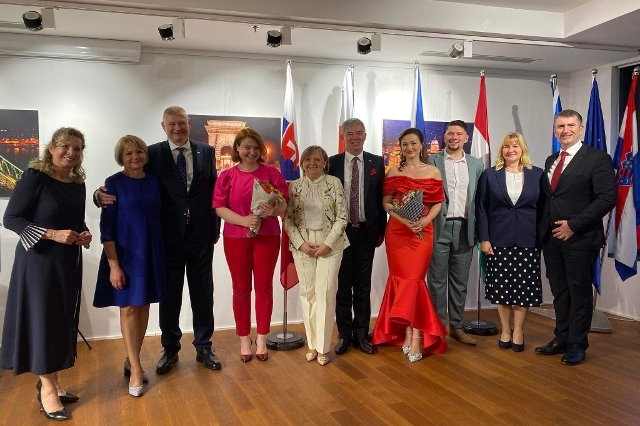
Projev ministra zahraničí Tomáše Petříčka, 5G Security Conference
02.05.2019 / 11:16 | Aktualizováno: 02.05.2019 / 11:19
Praha, 2. května 2019
Dear Prime Minister,
Dear speakers, participants and guests of the conference, Ladies and gentlemen,
It is my honour to welcome you to the Czernin Palace, the seat of the Ministry of Foreign Affairs of the Czech Republic.
I’m very glad that the conference on the security of 5G mobile networks takes place right here and right now. I’m deeply convinced that a discussion on 5G mobile networks security is urgently needed.
I appreciate that so many participants have come. There are more than 150 experts from 30 countries. I believe this confirms the urgency of the issue.
The race to employ 5G mobile networks is underway. It is quite clear that this race is multi‑dimensional, highly complex and fast-moving. The next generation of 5G mobile networks will be both quantitatively and qualitatively different from anything that has come before.
The most visible feature of new 5G networks is an enormous increase in data speeds. Estimates say that streaming data will be 100 times faster than in current 4G networks. It means, among others, that activities like “downloading” even very large files will be practically obsolete.
But the impact of 5G networks will be much stronger. As was publicly mentioned many times, the new capacities will dramatically enhance the performance and applicability of mobile data networks. By enabling new types of machine-to-machine communication, they will pave the way for next-generation digital applications that require highly reliable, near-instantaneous access to massive amounts of data. The result will be driverless cars, smart cities, etc.
But I can go even further: the development of 5G technologies will change our whole economy. It will form a backbone for a wide range of services essential for the functioning of the market and the maintenance and operation of vital societal and economic functions – such as energy, transport, banking, health, manufacturing, agriculture, etc.
So, when we are talking about 5G networks, we are talking about our future, quite different from the present. And because of that, we must be very careful and foresightful.
The development of 5G mobile networks also invokes major security implications, including in the sense of national security. Unfortunately, these are inherently involved in the architecture and complexity of 5G mobile networks itself.
In the current world where cyber-attacks are rising in number and sophistication, the guarantee of security of 5G networks is an issue of immense and strategic importance.
It is well known that state-sponsored malicious actors are operating in cyberspace with the intention to undermine the cohesion of our societies and paralyze the proper functioning of states and business.
We must consider also economic aspects of the development of 5G mobile networks. It should be commercially reasonable and viable, based on fairly, openly and transparently defined standards and principles.
Overall, the deployment of the 5G networks has a very complex context.
The involvement of the Ministry of Foreign Affairs in the discussion on 5G security is perfectly appropriate since a major part of this discussion involves questions of international politics.
At this conference, we are contemplating the model of cooperation among countries in an area where absolute trust is necessary – for all the security reasons I mentioned earlier. The countries, on which we might become technologically dependent, must be trusted and reliable.
It is not easy to find equilibrium when considering various aspects of the 5G technology, and its security in particular. And I’m really pleased that we have met in Prague today to try to do this job together. It is symbolic that there are experts from various parts of the world, who share the same goal. This is also proof of a certain geopolitical dimension of our discussion.
In conclusion, I would like to underline that the aim of our conference is to cover the security of the 5G mobile network in its complexity. After an opening panel and a block devoted to mobile operators, four working groups will start to analyse four crucial aspects of the 5G security: Policy, Technology, Economy and Security, Privacy and Resilience.
The conference should result in a coherent paper which will incorporate all four mentioned areas. Covering this complexity should be the main contribution of the conference to the general discussion on 5G technology.
I wish you success in finding a common, realistic and effective approach to assure the security of 5G mobile networks.






